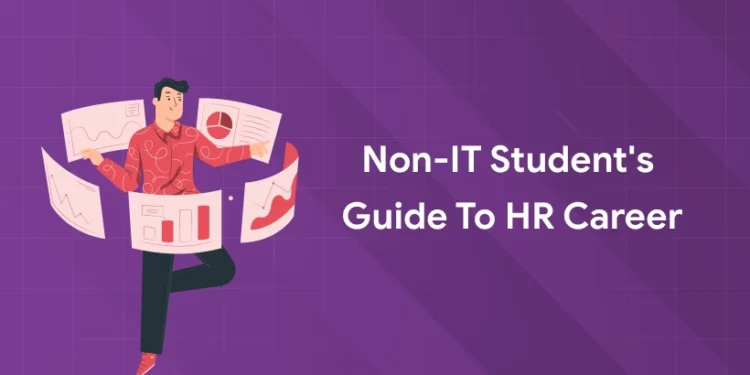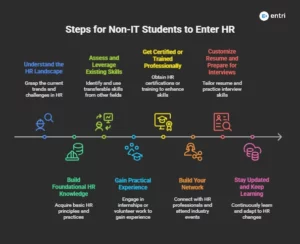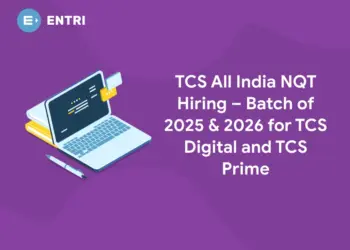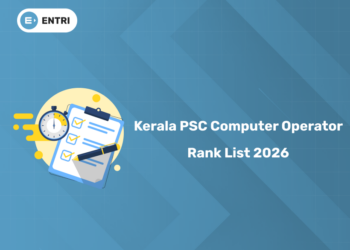Table of Contents
Key Takeaways:
- HR is a highly versatile field that welcomes diverse educational backgrounds, making it an excellent career choice for non-IT students with strong interpersonal skills.
- Effective communication, emotional intelligence, and conflict resolution are core soft skills that form the foundation of a successful HR professional.
- Technical competencies like HR technology literacy, data analysis, and understanding labor laws are increasingly important in today’s data-driven HR landscape.
- Proactivity, adaptability, and a commitment to continuous learning enable HR professionals to navigate the evolving workplace and add strategic value.
- Networking, practical experience, and targeted certifications significantly enhance entry and progression in the HR field.
Introduction: HR — The Ideal Career for Non-IT Students
The world of Human Resources is a vibrant, people-focused arena where diverse talents thrive. For non-IT students—whether from commerce, humanities, or pure sciences—HR offers a golden opportunity to build a meaningful career that combines business acumen with people skills. HR professionals shape workplace culture, nurture talent, and solve organizational challenges, often serving as the heart of every successful company.
Unlike IT careers, which emphasize technical programming or software knowledge, HR revolves around understanding human motivation, managing relationships, and implementing strategic solutions. Becoming part of this dynamic world is less about coding and more about communication, empathy, and analytical thinking—qualities abundant among non-IT graduates.
What Does a Career in HR Look Like for Non-IT Graduates?
Human Resources is a multi-faceted field, including:
-
Talent acquisition and recruitment: Finding and hiring the right people.
-
Employee engagement and wellness: Creating a supportive workplace where people grow.
-
Learning and development: Designing training to enhance skills.
-
Payroll and compliance: Managing salaries and adhering to labor laws.
-
HR analytics: Using data to make smarter decisions.
-
Employee relations: Navigating conflict resolution and fostering inclusive environments.
Non-IT backgrounds contribute valuable perspectives to these areas, particularly in communication, organizational behavior, and ethical leadership, often studied in fields like psychology, commerce, or social sciences.
| HR Career Path | Typical Job Titles | Core Responsibilities | Relevant Skills for Non-IT Students |
|---|---|---|---|
| HR Assistant / Coordinator | HR Assistant, HR Coordinator | Supporting HR operations, scheduling, record-keeping | Organization, communication, multitasking |
| Recruitment / Talent Acquisition | Recruiter, Talent Acquisition Specialist | Sourcing and interviewing candidates | Communication, interpersonal skills |
| Employee Relations | Employee Relations Manager, Engagement Officer | Handling grievances, promoting employee satisfaction | Empathy, conflict resolution, active listening |
| Learning & Development | Training Coordinator, L&D Specialist | Designing and facilitating employee training | Presentation, coaching, interpersonal skills |
| Payroll & Compliance | Payroll Executive, HR Compliance Specialist | Managing payroll, ensuring legal compliance | Detail-oriented, integrity, understanding of payroll rules |
| HR Analyst | HR Data Analyst, HRIS Specialist | Analyzing HR data, reporting, managing HR systems | Basic data analysis, tech adaptability |
| HR Generalist | HR Generalist, People Operations Executive | Managing various HR functions including recruitment, payroll, and employee relations | Adaptability, multitasking, problem-solving |
| HR Manager / Business Partner | HR Manager, HR Business Partner | Strategizing HR policies, team leadership | Leadership, strategic thinking, communication |
| Senior HR Leadership | Senior HR Manager, Chief People Officer | Leading HR teams, shaping organizational culture | Executive skills, vision, influential leadership |
Also read: HR Manager: Roles and Responsibilities
Become an HR Expert – Enroll in Our HR Management Course Today!
Unlock the secrets to effective Human Resource Management with our expert-led course! Learn recruitment, employee relations, performance management, and more to build a thriving workplace. Start your journey toward a successful HR career today!
Know MoreHow Non-IT Students Can Enter HR: Practical Steps
Step 1: Understand the HR Landscape
-
Research different HR roles and functions to identify areas that align with your interests and skills.
-
Learn about key HR concepts like recruitment, payroll, employee engagement, learning and development, and compliance.
Step 2: Build Foundational HR Knowledge
-
Enroll in beginner-friendly courses to understand HR fundamentals. Entri’s HR Management Course in Kerala offers a practical introduction suited for freshers and non-IT backgrounds.
-
Explore labor laws, HR policies, and business ethics, which are crucial for HR roles.
Step 3: Assess and Leverage Your Existing Skills
-
Evaluate transferable skills gained from your degree or extracurricular activities, such as communication, teamwork, event management, or problem-solving.
-
Highlight how these skills make you a great fit for people-centric roles in HR.
Also read: Skills Required for HR Professionals
Step 4: Gain Practical Experience
-
Look for internships, part-time jobs, or volunteering opportunities in HR departments or related fields to build hands-on experience.
-
Participate in campus HR clubs or organize events to demonstrate leadership and organizational abilities.
Secure your career in HR Management with Entri. Enrol now!!
Step 5: Get Certified or Trained Professionally
-
Obtain certifications or complete dedicated HR courses to boost your resume and increase your HR knowledge.
-
Entri’s HR Management Course provides live sessions, case studies, and placement support specifically catering to non-IT students preparing for HR roles.
Step 6: Build Your Network
-
Connect with HR professionals online via LinkedIn or attend industry webinars and local HR events.
-
Join HR forums or groups to gain insights, mentorship, and job leads.
Step 7: Customize Your Resume and Prepare for Interviews
-
Tailor your resume to highlight relevant skills, certifications, and experiences linked to HR functions.
-
Prepare answers to common HR interview questions, demonstrating how your non-IT background adds value through soft skills and a fresh perspective.
Step 8: Stay Updated and Keep Learning
-
Follow HR trends, technologies, and best practices through blogs, newsletters, and podcasts.
-
Continuously upgrade your skills in emerging areas like HR analytics and digital HR tools.
Explore our free materials, which can build a strong HR foundation!
Essential HR Skills for Non-IT Students
Human Resources demands a diverse skill set combining people skills, business knowledge, and technological adaptability. Non-IT students often excel in many non-technical but equally vital areas. Developing and honing these essential skills will ensure a strong foundation for a flourishing HR career:
Communication and Interpersonal Skills
-
The heart of HR lies in clear, empathetic communication—both verbal and written.
-
HR professionals interact with employees, leadership, and job candidates daily, so the ability to convey information clearly while listening actively creates trust and smooths workplace interactions.
-
Storytelling with data is an emerging skill: turning HR analytics into compelling narratives helps influence stakeholders and drive decisions.
Emotional Intelligence and Empathy
-
Understanding and managing emotions—one’s own and others’—enables HR pros to handle conflicts, support organizational change, and foster inclusive work environments.
-
Empathy helps in resolving employee grievances fairly and boosts engagement and retention.
Recruitment and Talent Acquisition
-
Skills in attracting, screening, interviewing, and onboarding candidates are foundational.
-
Modern techniques include AI-driven tools, social media recruiting, and employer branding—areas where upskilling pays off significantly.
Conflict Resolution and Employee Relations
-
The ability to mediate disputes, understand diverse perspectives, and negotiate fair solutions is critical for a harmonious workplace.
-
HR plays a key role in building a culture of equity, diversity, inclusion, and belonging.
Understanding of Labor Laws and Compliance
-
HR professionals must be well-versed in statutory laws governing employment to ensure organizational compliance and avoid legal pitfalls.
-
This knowledge protects both the company and employees.
Training, Coaching, and Development
-
Designing and facilitating effective training programs fosters employee growth and alignment with business goals.
-
Coaching skills empower HR professionals to support managers and elevate workforce capabilities.
Analytical Thinking and HR Technology Savviness
-
Proficiency in HRIS (Human Resources Information System), data analysis, and reporting tools enables data-driven decision-making.
-
Understanding trends through HR analytics improves workforce planning and performance management.
Time Management and Multitasking
-
Balancing various responsibilities such as recruitment, payroll, employee engagement, and compliance requires efficient prioritization and organization.
-
Strong time management ensures deadlines are met and projects succeed.
Integrity, Confidentiality, and Ethics
-
HR often handles sensitive employee information. Upholding confidentiality and acting with fairness and impartiality builds trust across the organization.
Adaptability and Continuous Learning
-
The HR field is rapidly evolving with new tools, laws, and workplace paradigms (e.g., remote work).
-
Being open to learning and adapting strategies to meet changing needs is essential for long-term success.
Teamwork and Collaboration
-
HR professionals regularly collaborate with departments, leadership, and external partners.
-
Strong teamwork skills contribute to coordinated efforts and collective problem-solving.
By focusing on these skills and actively building expertise through courses, hands-on experience, and mentoring, non-IT students can successfully transition into impactful HR roles. Entri’s HR Management Course is designed to help develop many of these capabilities through practical training and real-world case studies, making it an excellent choice for beginners looking to break into HR.
People also read: Top HR Skills To Make Your Resume Stand Out
Why Choose Entri’s HR Management Course?
Among many learning options, Entri’s course stands out for:
-
Live interactive sessions enabling real-time doubt resolution.
-
Hands-on assignments and real-world case studies.
-
Comprehensive coverage of recruitment, payroll, labor laws, employee development, and analytics.
-
Career mentorship and 100% placement support tailored for freshers from non-IT backgrounds.
Students praise the course for its clarity, practical focus, and strong foundation in the key HR disciplines, making it ideal for anyone beginning their HR journey.
Become an HR Expert – Enroll in Our HR Management Course Today!
Unlock the secrets to effective Human Resource Management with our expert-led course! Learn recruitment, employee relations, performance management, and more to build a thriving workplace. Start your journey toward a successful HR career today!
Know MoreConclusion: Step Into HR and Shape Your Future
Human Resources is an attractive, rewarding field for non-IT students eager to build impactful careers centered on people and organizational success. By investing in foundational knowledge, gaining practical experience, and earning recognized certification—especially through quality programs like Entri’s HR Management Course—any non-IT graduate can confidently launch and flourish in an HR career. Explore this path today; the dynamic world of HR awaits your unique talents and ambitions.
|
Related Articles |
||
| Best Career Options After BA | Skills Required for HR Professionals | |
| Will AI Replace HR Jobs? | ||
| Human Resource Management (Ultimate Guide) | ||
Become an HR Expert – Enroll in Our HR Management Course Today!
Unlock the secrets to effective Human Resource Management with our expert-led course! Learn recruitment, employee relations, performance management, and more to build a thriving workplace. Start your journey toward a successful HR career today!
Know MoreFrequently Asked Questions
Can non-IT students get into HR easily?
Yes. HR values soft skills and business understanding often found in non-IT disciplines. With targeted upskilling and experience, entry to HR is very achievable.
Do I need an HR degree to start a career in HR?
Not necessarily. Many HR professionals enter with degrees in commerce, arts, or even sciences. Professional certifications and practical training are often more important initially.
What roles can non-IT graduates expect in HR?
Entry-level jobs like HR Assistant, Recruitment Coordinator, Payroll Executive, or Training Associate are common starts, with growth into specialized and managerial roles.
How important is certification?
It’s quite important as it shows your knowledge and commitment. Certifications from recognized institutions or courses like Entri’s give you a competitive edge.
Can HR be a long-term career for non-IT students?
Absolutely. HR offers many specialties and leadership paths, suitable for lifelong career growth and continuous learning.















